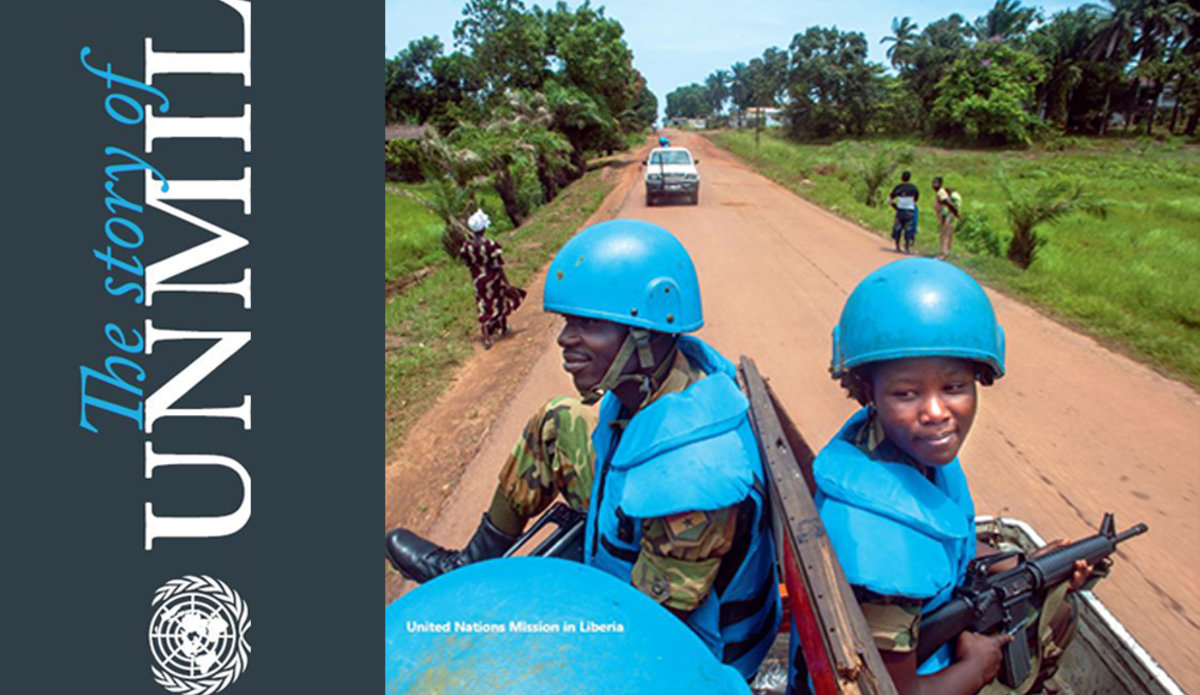The story of UNMIL [Book]: County reconciliation dialogues

The Government of Liberia has identified national reconciliation as a strategic objective for long- term peace consolidation and economic development. However, 14 years after the signing of the 2003 Comprehensive Peace Agreement there has been limited progress towards addressing the root causes of Liberia’s civil war.
Many of the key recommendations of the Truth and Reconciliation Commission, published in its final report of 2009, remain unrealized.
Furthermore, the passage of key bills is critical to addressing the root causes of the fragmented State-society relations, but the slow pace of legislative reform hinders reconciliation. A major deficit in the process of national reconciliation is the inability to effectively engage with local realities. Previously, national consultation processes tended to focus on the macro level and concentrated in Monrovia. Recent studies point to simmering local tensions which cut across inter-group relations, and the UN system and the Government have agreed that establishing a system for sustained and organic county reconciliation dialogue is a key building block for long-term peace consolidation and strengthening the gains of post war recovery.
County reconciliation dialogues were established as a Government commitment in the Liberia Peace Building Plan (2017) and will support the efforts to advance the Strategic Roadmap for national healing, peacebuilding and reconciliation, launched in 2012. In 2017 UNMIL funded eight county dialogues. Each initiative used broad based structured dialogue to improve communities’ participation in and ownership of the reconciliation process nationwide. Each dialogue produced a vision and five-year plan for reconciliation in the county, which was validated by the respective local authority and representatives of the local community. Thousands of people from all walks of life and diverse backgrounds have been included in the dialogue process which includes local authority figures, civil society leaders, elders, religious leaders, business people, women, youth and representatives of special interest groups such as people living with disabilities.
This outcome of the dialogues will help shape the agenda of a National Reconciliation Conference to be held in Monrovia in March 2018. The results will guide the Government of George Weah in formulating an integrated national policy for reconciliation and peace consolidation.
 UN
UN United Nations Peacekeeping
United Nations Peacekeeping

![The story of UNMIL [Book]: The Liberia Peacebuilding Plan The story of UNMIL [Book]: The Liberia Peacebuilding Plan](https://unmil.unmissions.org/sites/default/files/styles/gallery_image_thumb/public/field/image/a_liberian_womens_peace_group_member_performs_during_celebrations_for_the_10th_anniversary_of_the_peace_agreement.jpg?itok=qDewpnRC)
![The story of UNMIL [Book]: Governance and Economic Management Assistance Programme (GEMAP) The story of UNMIL [Book]: Governance and Economic Management Assistance Programme (GEMAP)](https://unmil.unmissions.org/sites/default/files/styles/gallery_image_thumb/public/field/image/the_book-gn_8.jpg?itok=UI71Q1Dr)


